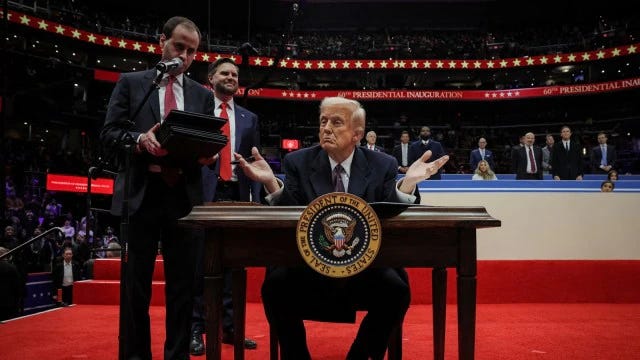Donald Trump’s Birthright Citizenship Order: Who It Affects and What It Means
Explaining the Impact of Trump’s Executive Order on US Birthright Citizenship
Following former US President Donald Trump’s executive order revoking birthright citizenship for certain immigrants, questions have arisen regarding its implications, including concerns about individuals like Usha Vance, the wife of Vice-President J.D. Vance.
Usha Vance, born in 1986 to Hindu parents who immigrated to the United States in the late 1970s, is among those whose status has been speculated on. However, the order does not apply retroactively, meaning individuals who were granted citizenship before the signing of the executive order remain unaffected.
Who Will Be Affected by Trump’s Order?
According to the order, which was signed on January 20, the new rule will apply only to individuals born in the United States after 30 days from the signing date. It states that a child born to a mother who is either unlawfully present or on a temporary legal visa, and who does not have a father who is a citizen or lawful permanent resident, will not receive automatic birthright citizenship.
This policy affects individuals holding H-1B visas, temporary visas (including students, tourists, and temporary workers), and undocumented immigrants. It also raises concerns for those currently awaiting green cards, as obtaining permanent residency in the U.S. is often a lengthy process.
Legal Challenges and Constitutional Debate
Critics argue that the executive order directly conflicts with the 14th Amendment to the U.S. Constitution, which states: “All persons born or naturalized in the United States, and subject to the jurisdiction thereof, are citizens of the United States and of the State wherein they reside.”
The debate centers around the interpretation of the phrase “subject to the jurisdiction thereof.” Trump’s order asserts that children born to those in the U.S. illegally or temporarily do not qualify for birthright citizenship under the 14th Amendment. The order argues that the amendment has never been universally applied to all individuals born on U.S. soil.
Legal opposition has been swift, with 22 Democratic-led states and multiple civil rights organizations filing lawsuits to block the order. The final decision now rests with the courts. If the order is struck down, Trump would need to pursue a constitutional amendment, a process requiring a two-thirds majority in both Houses of Congress and approval by three-quarters of state legislatures.
As legal battles unfold, the future of birthright citizenship in the U.S. remains uncertain, with significant political and legal ramifications in the months ahead.


